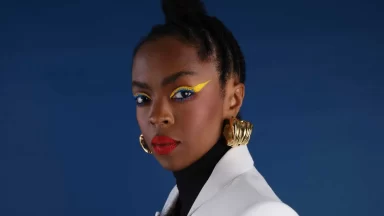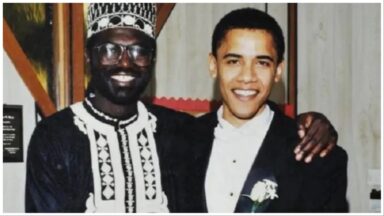From masks worn to prevent the spread of Covid-19 to Hong Kong protesters wearing Guy Fawkes masks during anti-China protests, 2020 is a time of masks.
Yet in much of Africa, such face coverings masks have a different meaning and are far more likely to have a connotation of beauty and awe, rather than fear and crisis. They are part of a creative aesthetic that has deep origins in many African cultures being revived by a new wave of artists in the 21st century.
Kanye West Breaks Down and Rants About Abortion and Harriet Tubman at Presidential Campaign Rally
In the early 20th century, Fauvist artists like Henri Matisse and Cubists like Pablo Picasso were influenced by African masks in their artwork. Yet, following World War II, such face coverings were shunned by serious African artists for decades because of their association not only with traditional religions, but also because many were mass-produced by commercial woodcarvers.
“Many masks are made by woodcarvers as a souvenir more then an artistic expression. And I don’t produce for tourists,” said Joseph Tsatsu Siame, an artist and art teacher with a nonprofit in Ghana.
Now new voices are emerging across Africa to revive masks as a creative art form in novel ways. Perhaps the best-known example is Benin’s Romuald Hazoumè, who uses only recycled materials as a medium, including a series of works featuring recycled jerrycans [fuel containers] repurposed as masks. Hazoumè’s “La Bouche du Roi” is an interpretation of a famed 1789 image of Africans being transported into slavery tightly packed below the decks of a British slave ship.
Contemporary African art shows and museums are taking notice of the resurgence in masks as an art form. The Museum of African Contemporary Art Al Maaden in Marrakech features the work of Hazoumè and others in its permanent collection. Art shows like Art X Lagos and the 1-54 series of African art shows in New York, London and Morocco have also featured contemporary masks or mask images.
Others have found other playful ways to play with the idea of masks. Toufic Beyhum, a Beirut-born photographer now based in Namibia, merges traditional African masks and social media “emojis” in his work. In Kenya, artist Cyrus Kabiru has uses recycled materials built around eyeglass frames that reflect Afro-futurism.
Source: The Art of the Mask Re-emerges



Recent Comments